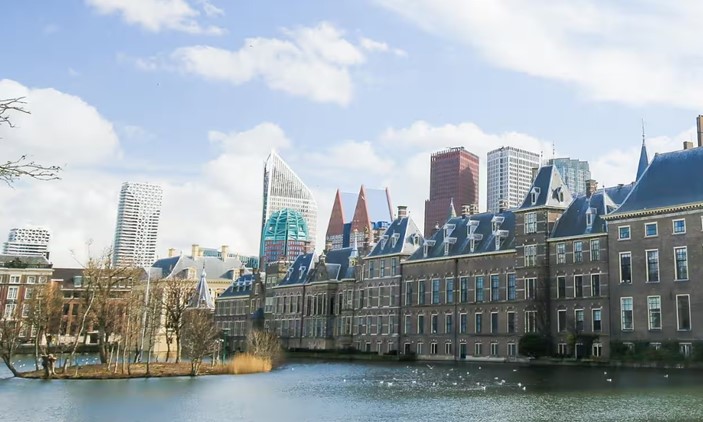
The Hague Becomes World's First City to Ban Fossil Fuel-Related Ads
The Hague has made history by becoming the first city to pass a law banning advertisements for fossil fuel products and services with a high carbon footprint. The legislation, approved on Thursday, will outlaw ads promoting petrol, diesel, aviation, and cruise ships from appearing on public spaces such as billboards and bus shelters. The ban will take effect at the beginning of next year.
This is the first instance where a city has enacted a legally binding ban on high-carbon advertising through local legislation. The move comes in response to a call from UN Secretary-General António Guterres for governments and media to implement bans on fossil fuel ads, similar to restrictions placed on tobacco advertising.
Some cities have already taken steps to limit the reach of fossil fuel-related ads through voluntary agreements. For example, Edinburgh passed a motion earlier this year to ban advertisements for fossil fuel companies, airlines, airports, and fossil fuel-powered vehicles on city-owned advertising spaces. However, The Hague's ban is legally enforceable, a significant departure from previous measures.
The new law prohibits the promotion of fossil fuel products and services with a high carbon footprint but does not extend to political ads from the fossil fuel industry or general brand promotions. It marks a decisive move after previous attempts to limit such ads in the city failed due to non-compliance from advertising operators.
Femke Sleegers of Reclame Fossielvrij, a Dutch organization advocating for fossil-free advertising, praised The Hague's bold stance, stating that the city demonstrated the necessary courage to address the climate crisis.
Thijs Bouman, an environmental psychology professor at Rijksuniversiteit Groningen, added that fossil fuel ads undermine climate action by normalizing unsustainable behaviors. He emphasized that government resources currently used to counteract the influence of such ads could be better spent promoting sustainable alternatives, such as public transport.
The Hague's law could inspire similar campaigns globally. Cities like Toronto and Graz are considering similar measures, and a local ban has been proposed in Amsterdam. While cities like Amsterdam and Haarlem have already restricted ads for climate-damaging products, such as meat, they have yet to make these bans legally binding.
Sleegers noted that many cities were waiting for a trailblazer, and The Hague has now set that precedent.